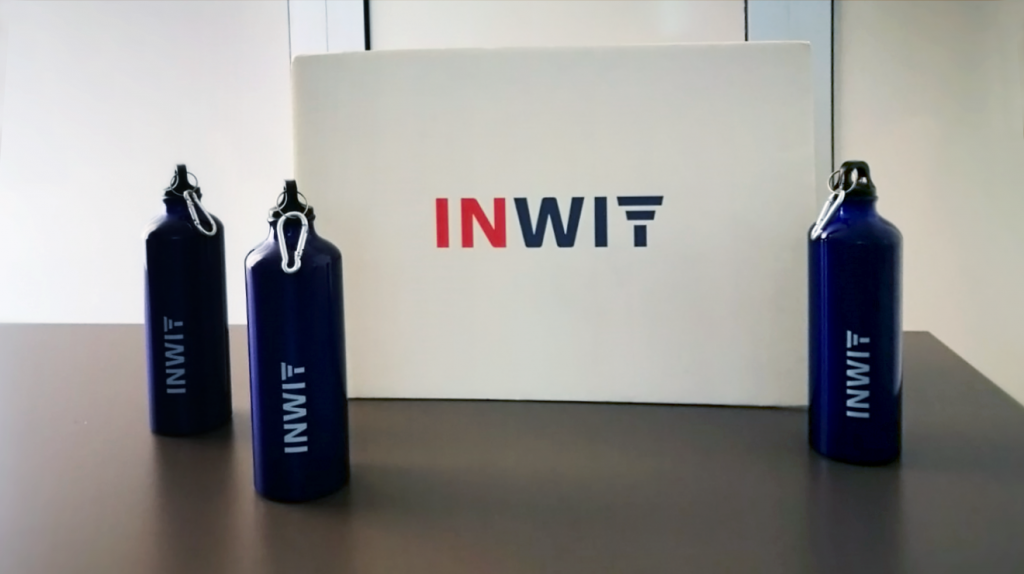Goodbye Plastic: INWIT’s Sustainable Choice

IINWIT has decided to start to become a plastic-free company. This sustainable choice is part of our corporate strategy to create economic and social value.
IINWIT has decided to start to become a plastic-free company. This sustainable choice is part of our corporate strategy to create economic and social value.
Each year, 570,000 tons of plastic are thrown into the waters of the Mediterranean Sea, the equivalent of 33,800 plastic bottles every minute. This unsustainable practice will quadruple pollution in the Mediterranean area in the next thirty years.
At INWIT, we’ve decided to do our part and start to become a plastic-free company, with the awareness that even small gestures can be decisive in solving big problems.
As part of this choice, our colleagues will receive a reusable metal water bottle with INWIT’s colors and logo: a simple object that allows them to take easy sustainable action, just by drinking a glass of water.
Our business strategy starts from the awareness that long-term economic development cannot exist without also guaranteeing improved social well-being and the protection of natural resources. Reducing the use of plastic in our offices is a step in this direction: even a small gesture can be decisive for sustainability
Giovanni Ferigo, CEO of INWIT
Sustainability for INWIT
INWIT’s choice to reduce plastic use is part of a new corporate strategy based on the creation of economic and social value, which involves a paradigm shift from Corporate Social Responsibility to the concept of Corporate Shared Value (CSV).
The goal is to connect our economic-financial outcomes with the sustainable development of the community and the contexts where the company operates.
For INWIT, specifically, sustainability involves three areas:
- Environmental sustainability: maintaining the availability of resources, ensuring balance between their use and the needs of the business
- Social sustainability: the promotion of equity between generations and of the equitable distribution of conditions of human well-being by class and gender (health and safety, education, democracy, participation, justice)
- Economic sustainability: the ability to maintain capital and increase it by generating work opportunities for the livelihood of the population.
Our goal is to achieve a balance between these three areas, keeping the expectations of all stakeholders in mind (customers, shareholders and financial backers, employees and collaborators, suppliers and partners, the local community, institutions and regulatory bodies) and trying to reconcile their needs.
And with the choice to start to become a plastic-free company, we’re demonstrating our concrete commitment to protecting the environment around us!